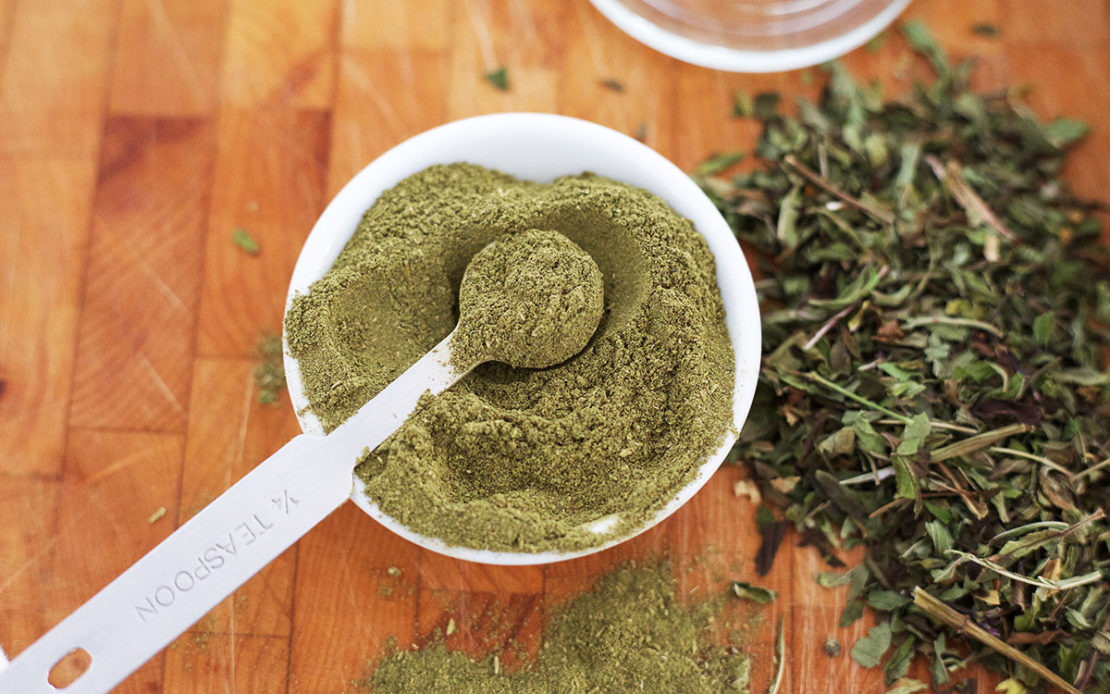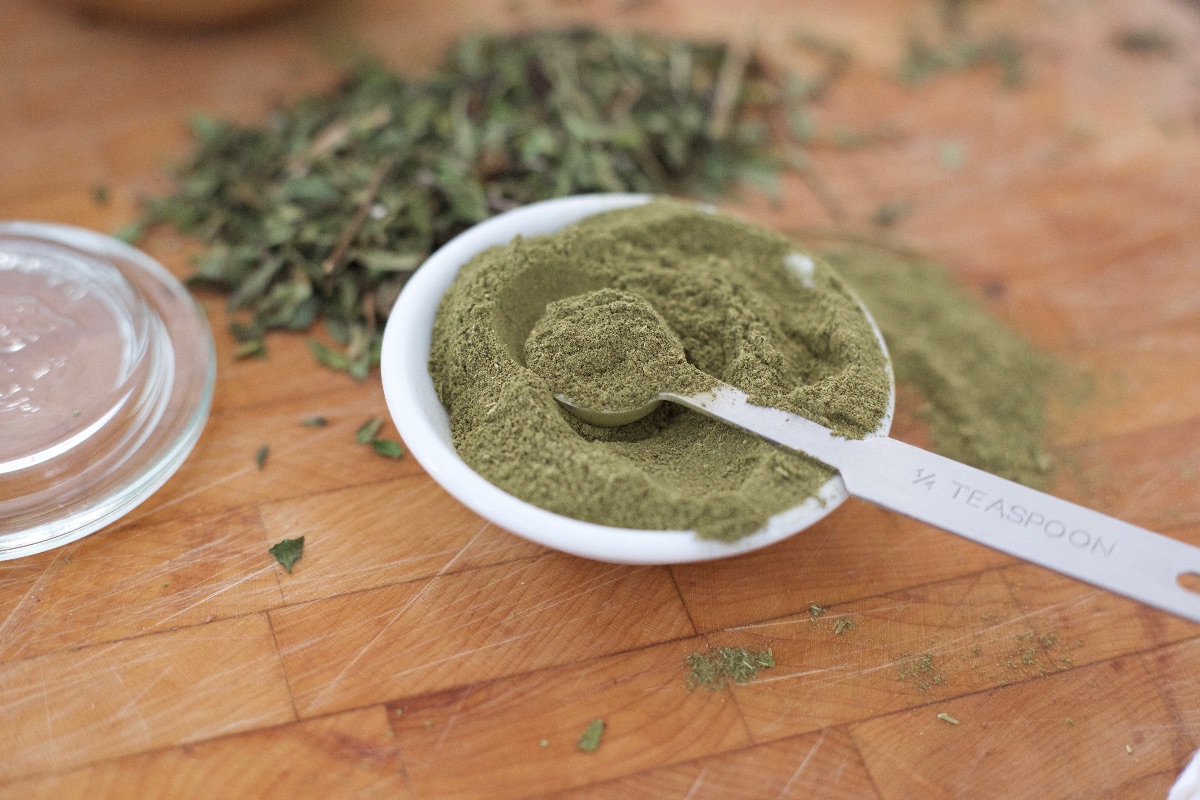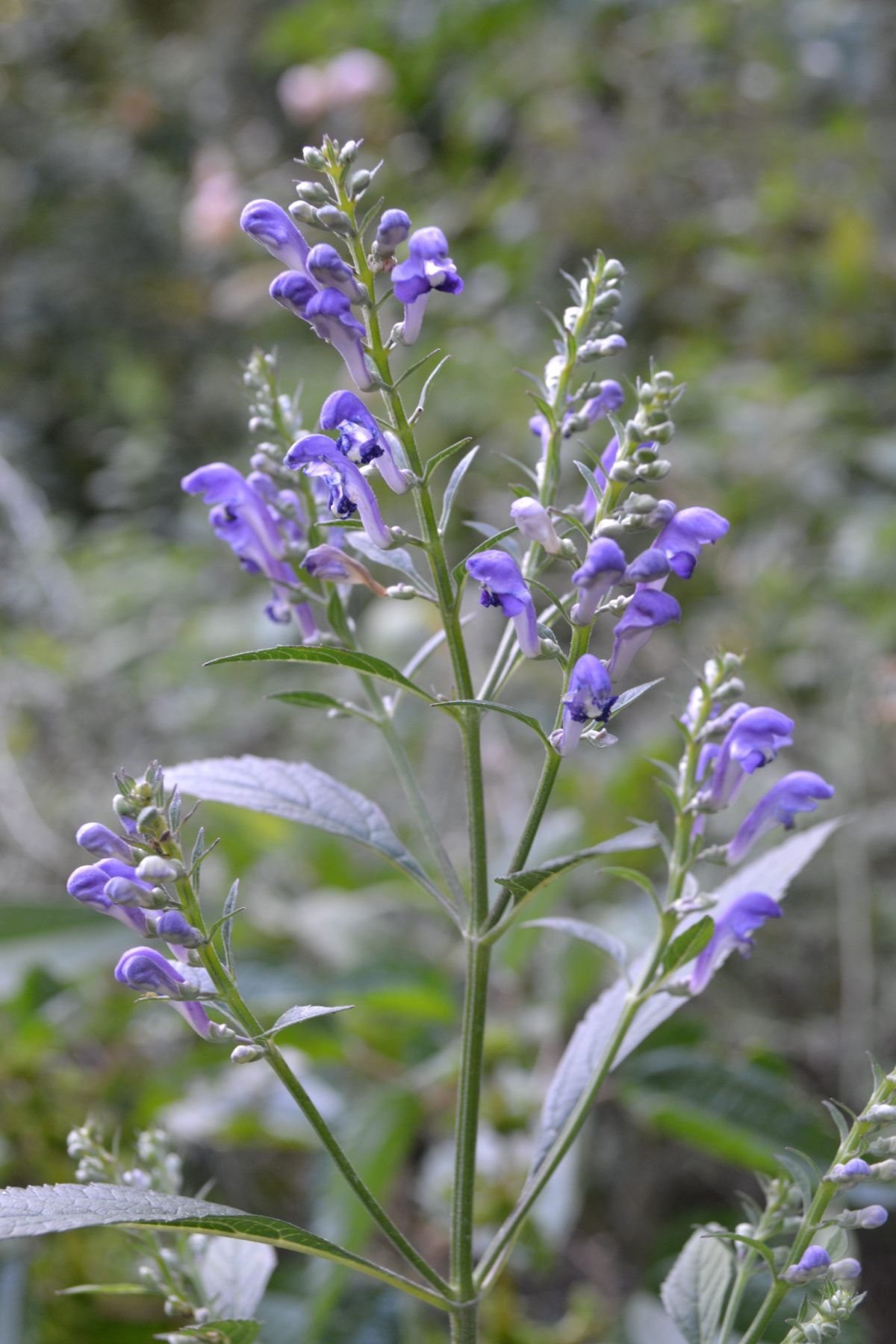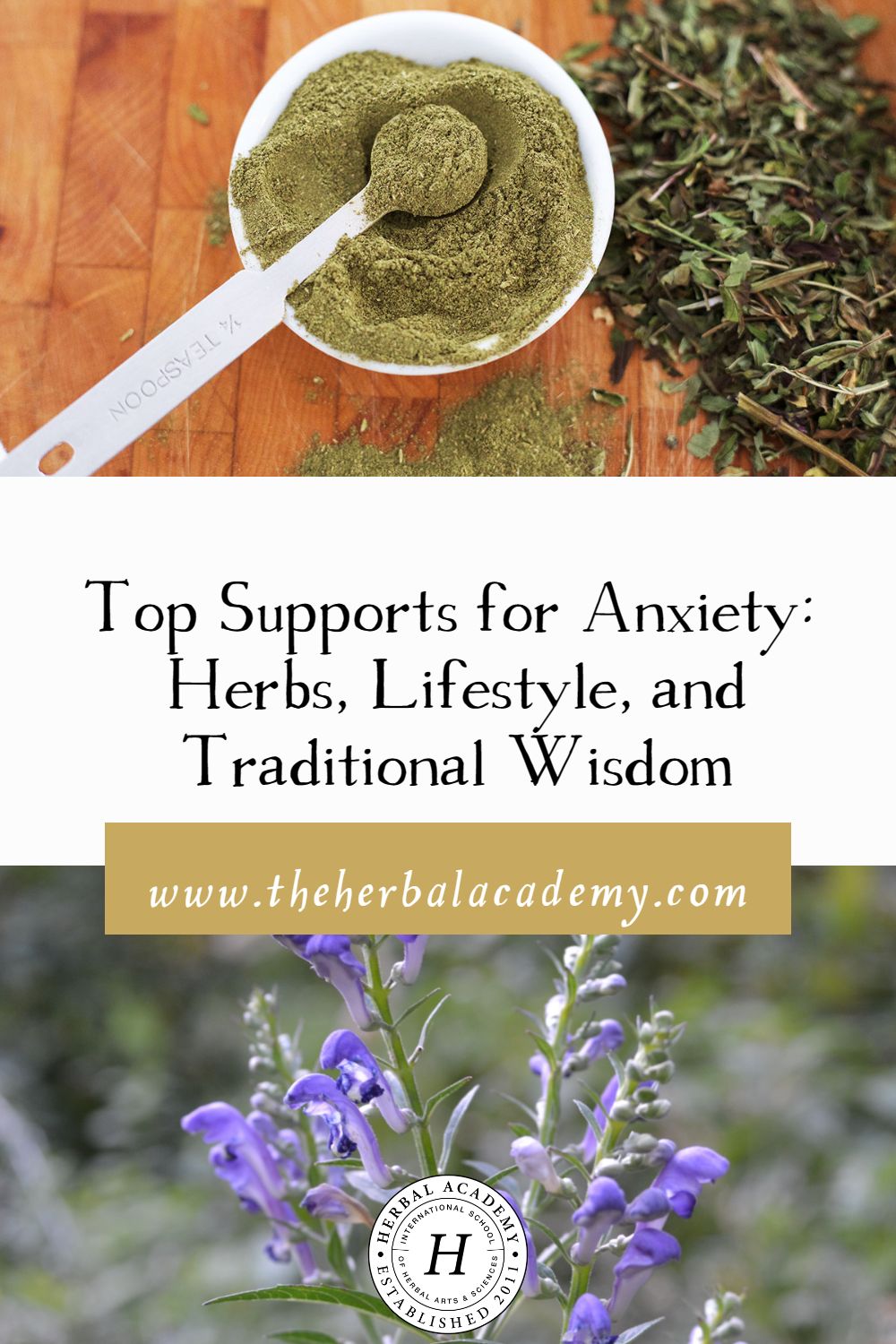
Top Supports for Anxiety: Herbs, Lifestyle, and Traditional Wisdom
On the rare occasion when I meet someone who reports that they never get stressed or anxious, I typically raise an eyebrow. Some level of stress, worry, and even fearfulness is a natural and normal part of life. We have evolved to have a negativity bias as a means of survival, meaning we scan our environment for potential threats. However, when fear and worry become persistent and chronic and interfere with one’s ability to sleep, eat, think clearly, and/or simply enjoy life, it is certainly worth addressing. In this article, we will explore herbal and lifestyle supports for anxiety. The intention of the information and perspectives offered in this article is not to replace important mental health care but rather to offer general, holistic tools for addressing stress, especially when it becomes persistent or heightened.

Understanding The Source of Stress
First of all, if you or someone you love experiences anxiety, it’s helpful to take a 360 degree view of your day-to-day living and also to understand how prolonged stress and worry affect you personally. Before reaching for a solution, it’s always a good idea to identify the problem.
Perhaps the source of anxiety is quite clear and obvious, perhaps not. Either way, when anxiety crops up, it is helpful to take an initial global assessment of the overall balance in one’s life. For instance, you may know that you are stressed because of a recent move or job change. In this case, the source of the stress is known. However, how are you doing in life overall? Is the job change leading to irregular eating habits or less-than-nourishing food choices? Is it impacting quality time with your loved ones? Has your sleep been affected? Even if you are not keenly aware of the source of your stress, these can be helpful questions to ask. What is the state of your eating habits, sleep habits, and relationships? Are you getting ample physical movement and exercise? Also, time for rest, spontaneity, and creativity can do wonders in creating a much-needed escape valve for mounting internal pressures. Life balance isn’t a matter of just doing all the right things; allowing space for non-doing or unstructured time is also important for cultivating feelings of ease and wellbeing.
There are many causes for anxiety, from situational to biochemical. Fortunately, from psychotherapy to exercise to herbal allies, there are also many ways in which we can work with, ease, and better understand the causes and manifestations of anxiety.

Anxiety and Energetic Connections
Traditional systems such as Ayurveda offer an additional perspective on anxiety and mental health. Ayurveda looks at anxiety as being the chief psychological imbalance of vata dosha. This is because vata dosha relates specifically to the nervous system. Also, vata is made of air and ether and relates to all forms of movement—both physiological and mental. Excessive wind and ether lead to rapid thinking, rapid heartbeat, and feelings of ungroundedness (all associated with anxiety) (Frawley, 2000). However, people of all constitutional types can experience anxiety. There are pitta and kapha forms of anxiety, as well as vata-type anxiety.
Vata-Type Anxiety
Since one of the main qualities of vata dosha is mobility, change (especially major life changes such as moving, the death of a loved one, or a job change) is a major contributing cause of vata-type anxiety. Excessive mental activity and overstimulation also contribute to vata-type anxiety. Examples of excessive stimulation are ongoing loud noises, overuse of stimulants, and exorbitant use of electronics. Mental rest and quiet time are very important for vata types in order to be able to reboot and restore their nervous systems, so to speak. This is true for everyone, but vata-types are known to have especially sensitive nervous systems, so it is even more critical in their case. Mental rest can take the form of a mindfulness practice, quiet walks in nature, or journaling, painting, drawing—to name a few ideas.
Pitta-Type Anxiety
Pitta dosha is made of fire and water and due to its fiery nature, hot emotions such as anger are typically associated with pitta dosha. “Energy, ambition, and aggression are the primary qualities of pitta” (Tiwari, 1995, p. 48). Blaming others, aggression, and being hypercritical are issues related to pitta dosha, as opposed to fearfulness, worry, and nervousness, which are most often related to vata dosha (Frawley, 2000). Maintaining control tends to be important to pitta types. Therefore, when anxiety is linked to the challenge of letting go of perceived control, an imbalance with pitta dosha may be at the roots (Frawley, 2000).
Kapha-Type Anxiety
Naturally methodical and steady, kapha types are probably the least likely to experience anxiety. “Solid as a rock, cool as a glimmering stream in the white moonlight; such is the essence of kapha” (Tiwari, 1995, p. 52). Though cool and steady on the whole, anxiety linked to letting go of routines, attachments, and beloved possessions is likely driven by kapha dosha (Frawley, 2000).

Herbal Supports for Anxiety
There are many causes and manifestations of anxiety. Observing how anxiety affects you and/or those close to you can help hone in on the best tools of support. Let’s take a look at some herbal allies for soothing stress and anxiety. Before choosing the best herb(s) for you, consider whether you are looking to calm your nerves with the intention of assisting sleep and producing a sedative effect. Or, are you looking for calming with an uplifting, clarifying, and even energizing effect? You may have some herbs that you choose for daytime nervous system support and different herbs that you choose for evening and bedtime support.
Calming, Clarifying, and Nourishing Nervines
The following herbs are appropriate to take during the day for nervous system support, as they will help smooth out your nerves without producing a sleepy or sedative effect. The herbs below are just a few ideas. Some other herbs to consider for calming your nervous system while keeping your mind alert are: brahmi (Bacopa monnieri), schisandra (Schisandra chinensis), reishi (Ganoderma spp.), lemon balm (Melissa officinalis), mimosa (Albizia julibrissin), and milky oat tops (Avena sativa).
Gotu kola (Centella asiatica) boasts many usages. This leafy green plant likes to spread its tender vines in warm, sunny, moist climates. Consider gotu kola for boosting memory, soothing chronic skin issues, uplifting mental lethargy, promoting circulation (including to the brain), and soothing anger and irritability (Dass, 2013; Groves, 2016). Due to its cool energy, gotu kola is a helpful herb for many pitta-type imbalances ranging from inflamed skin to irritability and burnout. So, if anxiety is expressed with anger, irritability, and challenges with releasing control, consider gotu kola.
Tulsi (Ocimum tenuiflorum) is highly revered in Ayurveda and in Indian culture and is considered a sattvic, or purifying/clarifying herb (as is gotu kola). The clarifying quality of tulsi extends to its usage both internally and as a houseplant to purify the air. Tulsi possesses a warm energy, so consider it for vata and kapha-type stress and anxiety, as well as headaches, colds, cough, and sinus congestion (Dass, 2013). This balancing, uplifting adaptogen may also be helpful for releasing deep-seated sadness and grief (Dass, 2013), so you can turn to tulsi when there are heavy-feeling emotions, fatigue, or lethargy accompanied by symptoms of stress.
Not enough can be said about the benefits and usages of ashwagandha (Withania somnifera). Considered an adaptogen by Western herbalists and a rasayana (deeply rejuvenating herb) in Ayurveda, ashwagandha calms and supports the nervous system through deep nourishment. Considered a nervine, rejuvenative, mild sedative, and immunomodulator, ashwagandha can be reached for during times of fatigue from overwork or stress, sleep challenges, and even chronic inflammatory or immune conditions (Dass, 2013). Though ashwagandha assists in sound sleep, especially when taken over the course of several weeks, most people will find that it does not have an immediately sedating effect. This starchy, nourishing root can be taken in fairly substantial doses (1-9 grams per day) and is generally safe for long-term use (Dass, 2013). However, those with a nightshade sensitivity should use caution as ashwagandha is a nightshade.

Soothing and Sedating Nervines
While the herbs mentioned above are generally suitable for daytime use to assist in getting through stressful times while staying awake and clear-headed for the duties of the day, it may also be helpful to have herbs that help you unwind and that promote sleep and restfulness. The following herbs are suitable for that purpose. In addition to the herbs highlighted below, other sedating nervines include valerian (Valeriana officinalis), kava (Piper methysticum), motherwort (Leonurus cardiaca), and blue vervain (Verbena hastata). Depending on how your body and mind respond to particular herbs, some of these plant friends may be fine to take during the day. However, it’s always wise to start with a small dose and proceed with caution when trying out new herbs, so that you can see how your unique chemistry responds.
Passionflower (Passiflora incarnata) is a wonderful herbal support for producing a serene and mildly sedative effect. Though some people can take it during the day to soothe anxiety and even ease panic attacks, it may be too sedating for daytime use for many people and is therefore an excellent bedtime or evening herbal support for most. Turn to passionflower for a relaxing effect before bedtime and when anxiety is accompanied by feelings of heat and irritability (Groves, 2016).
Lavender (Lavandula spp.) is a remarkably versatile, widely-used, and popular herb. I don’t know many people who don’t enjoy lavender in some form! From soaps to aroma sprays, cocktails, mocktails, lattes, lotions, and simply inhaling the aroma of the dried or fresh flowers, there are myriad ways to enjoy and benefit from lavender. Also beneficial for the skin, lavender is a calming nervine. Though it can be taken internally, lavender works particularly well in aromatherapy to soothe the nerves and enhance sleep (Groves, 2016). You can read more about lavender and the impact of scent on mood in the Herbal Academy article How Does Scent Affect Mood?
Skullcap (Scutellaria lateriflora) is another soothing, sedating, and energetically cool nervine. Though mild enough for many people to take during the day, skullcap is indicated for insomnia, anxiety, and agitation (Groves, 2016). Due to its light, cool nature, skullcap is suggested for balancing an overheated pitta mind, yet it also works well in addressing sensory overload (a common vata-type plight) and can be combined with heavier, warming herbs such as ashwagandha to more specifically target vata-type anxiety, insomnia, and restlessness (Dass, 2013).
Lifestyle Balance for a Healthy Nervous System
As mentioned earlier, lifestyle is key in setting the stage for keeping anxiety in check and one’s mood balanced. In addition to getting ample quality sleep and plenty of exercise, social connections play a huge role in mental health. Substantial research supports the value of social connections and cohabitation in promoting happiness, fulfillment, and even longevity (Buettner & Skemp, 2016). Also, having a meditation or mindfulness practice (be it yoga, sitting meditation, walking meditation, tai chi, or others) has marked effects on restoring the nervous system to a more restful state and getting out of fight, flight, or freeze mode. Though there are many factors to consider in addressing anxiety, most of us know from experience that life is more joyful and we feel less stressed when we connect with friends and loved ones, eat wholesome foods, sleep well, and get plenty of physical movement. In addition to cultivating a well-rounded lifestyle, fortunately, we also have plenty of herbal supports to turn to in order to assist us on our journey to mental and emotional wellbeing.

REFERENCES
Dass, V. (2013). Ayurvedic herbology East and West. Lotus Press.
Frawley, D. (2000). Ayurvedic healing: A comprehensive guide. Lotus Press.
Groves, M.N. (2016). Body into balance: An herbal guide to holistic self-care. Storey Publishing.
Tiwari, M. (1995). A life of balance. Healing Arts Press.









